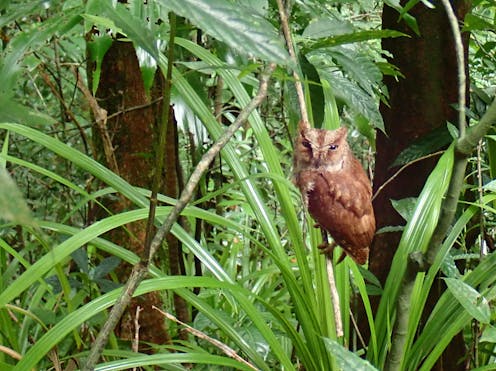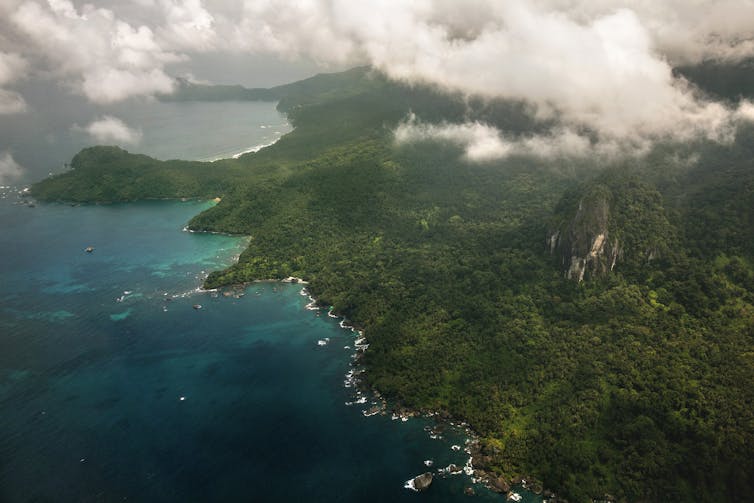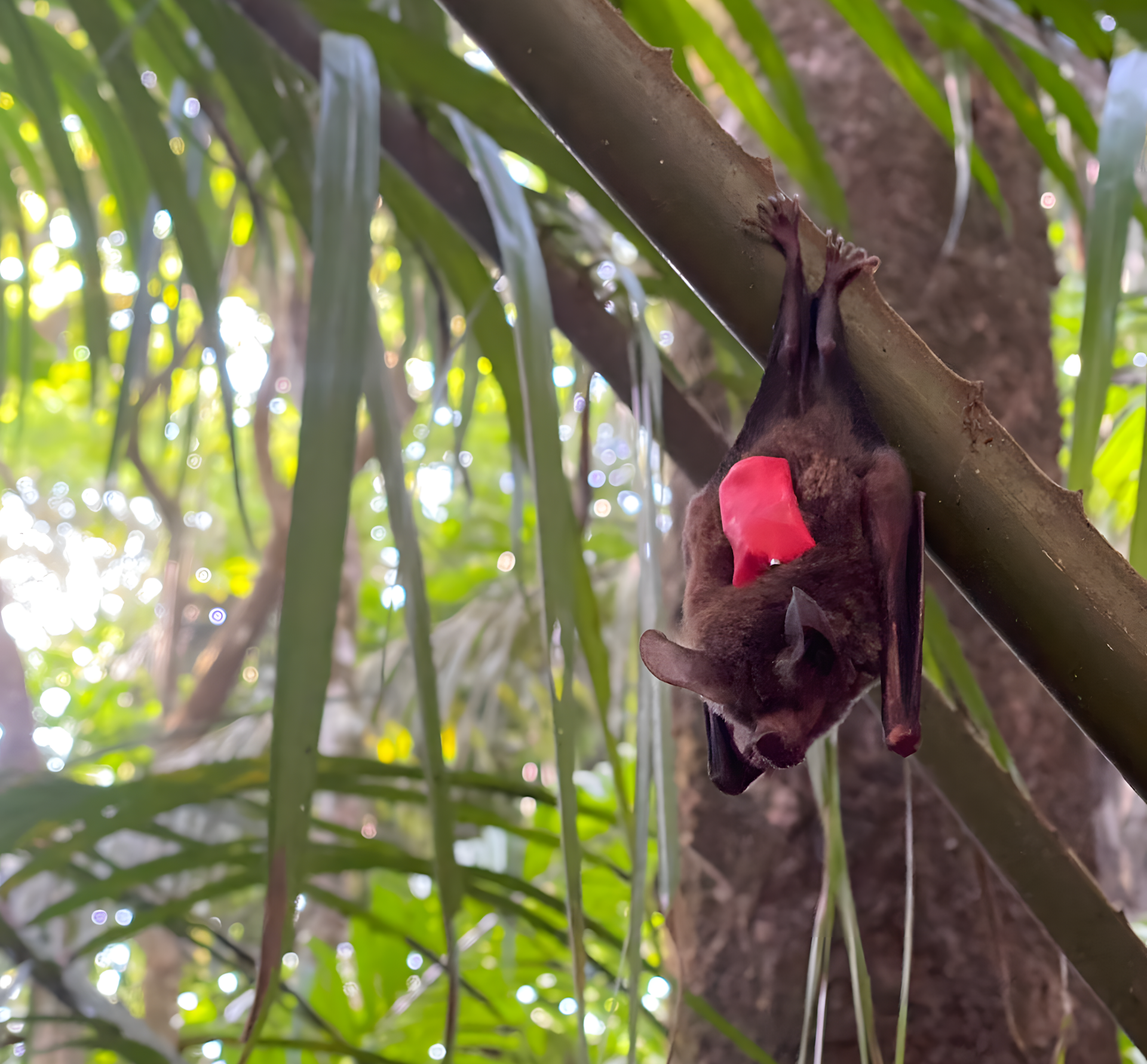Biologists discovered a new species of tiny owl on the forested island of Príncipe, and it's already
A local legend of a mysterious bird with big eyes grew into the discovery of the Príncipe scops owl. A biologist on the team tells the story of finding and cataloging this new species.

A team of Spanish biologists has discovered a tiny new species of owl, called the Príncipe scops owl, living in a remote forest on an island off the west coast of Africa. In this Discovery episode of The Conversation Weekly, we speak with Bárbara Freitas, a Ph.D. fellow who studies bird evolution at the National Museum of Natural Sciences in Madrid. She was on the team that discovered the Príncipe scops owl and talks about how her team discovered this new species and the threats it is already facing.
Príncipe is a tiny island in the Gulf of Guinea, about 200 miles (320 kilometers) west of Gabon. There is a small town on the north side of the island, but the southern half is mountainous, with dense jungle, and completely uninhabited. In 1998, a biologist named Martim Melo was on a trip to Príncipe when he started hearing rumors of a mysterious bird that had been scaring local parrot harvesters.
“Instead of finding the parrot chicks, they found a weird bird with such big eyes that they didn’t know what they were looking at,” explains Freitas. Melo was able to get an audio recording of what he believed to be this mystery bird but wasn’t able to see one.

Almost two decades later, in 2016, a Belgian bird watcher with a penchant for owls went down to Príncipe and snapped a photo of a small owl that appeared to confirm the rumors Melo had heard. With these pieces of evidence, Freitas and Melo flew to Príncipe in 2018 to try to track down this owl.
They needed to catch an owl to confirm if it was indeed a new species, and they were planning to do so by playing the recording Melo had taken 20 years prior. Freitas and Melo would walk into the jungle and play the recording, hoping that if other owls were nearby, “they listen to the song and they are attracted to it,” Freitas explains. “This is because they are territorial, so they come to defend their territory.”
Freitas and Melo, with the help of a local park ranger named Ceciliano do Bom Jesus, who goes by Bikegila, traveled to the southern part of the island. And as Freitas tells it, before they even began playing recordings, the owl made itself known.
“We were setting up the camp, putting up the sleeping nets and waiting for it to get dark. And then suddenly, we started to hear the owl,” she says.
To hear how Freitas, Melo and Bikegila captured and described the first specimens of the Príncipe scops owl, what these owls sound like and how this newly discovered species is already threatened by human development, tune in to this Discovery episode of The Conversation Weekly.
This episode was written and produced by Katie Flood and hosted by Dan Merino. The interim executive producer is Mend Mariwany. Eloise Stevens does our sound design, and our theme music is by Neeta Sarl.
You can find us on Twitter @TC_Audio, on Instagram at theconversationdotcom or via email. You can also sign up to The Conversation’s free daily email here. A transcript of this episode will be available soon.
Listen to “The Conversation Weekly” via any of the apps listed above, download it directly via our RSS feed or find out how else to listen here.
Barbara Freitas receives funding from FCT-Fundação para a Ciência e Tecnologia, Portugal. Forever Príncipe Conservation Alliance (from Africa’s Eden), National Geographic Society (Early career grant - EC-364C-18),
Read These Next
Cuba’s speedboat shootout recalls long history of exile groups engaged in covert ops aimed at regime
From the 1960s onward, dissident Cubans in exile have sought to undermine the government in Havana −…
Nanoparticles and artificial intelligence can help researchers detect pollutants in water, soil and
Tiny particles bounce light around in a unique way, a property that researchers are using to detect…
Tiny recording backpacks reveal bats’ surprising hunting strategy
By listening in on their nightly hunts, scientists discovered that small, fringe-lipped bats are unexpectedly…





